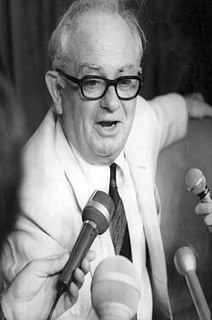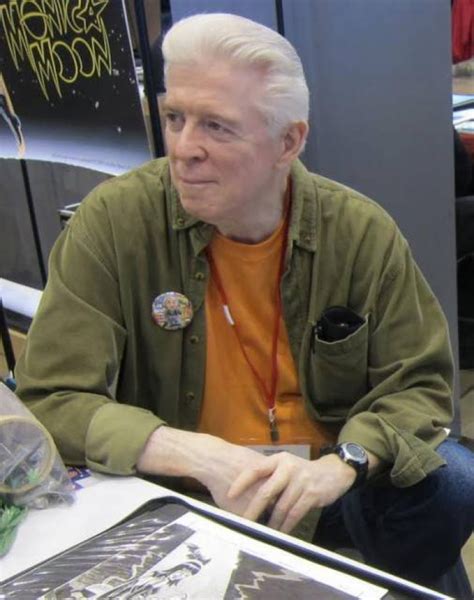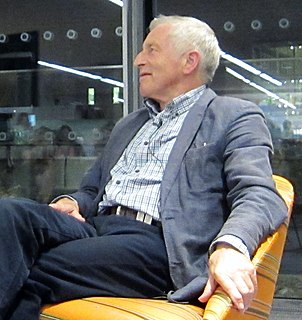A Quote by William J. Duiker
Finally, in 1954 [Ho Chi Minh] agreed to the Geneva Agreement, which divided the country temporarily into two zones, in the hope that national elections might unify the country under his leadership.
Related Quotes
Eisenhower managed to begin the Vietnam war by not following his normal instinct of staying out of mischief. In his memoirs, he tells us why we didn't honor the Geneva accords and hold elections in Vietnam: because some 80 percent of the country would have voted for Ho Chi Minh. This is very candid. The sort of thing one might have found in Stalin'smemoirs, had he not made ghosts even of ghosts.
On many occasions in the late 1950s and 1960s, [Ho Chi Minh's] ideas were apparently ignored by those who felt that his approach was too naive and prone to compromise. The outbreak of open warfare with the French and later with the United States was in effect a sign of the failure of Ho Chi Minh to achieve his objective to fight and win at low cost.
I see no reason to believe that the Vietnamese Communist Party will lose control over the reins of power in Vietnam. There is no organized force in the country that is capable of competing with the VCP for power. And the party still believes that it must rule by intimidation and by dominating the political scene In effect, it has abandoned that part of Ho Chi Minh's legacy that the people must be won over by persuasion rather than by force - a dictum that Ho Chi Minh did not always follow himself.
We seem bent upon saving the Vietnamese from Ho Chi Minh, even if we have to kill them and demolish their country to do it....I do not intend to remain silent in the face of what I regard as a policy of madness which, sooner or later, will envelop my son and American youth by the millions for years to come.
Giap was a master of logistics, but his reputation rests on more than that. His victories were achieved by a patient strategy that he and Ho Chi Minh were convinced would succeed - an unwavering resolve to suffer immense casualties and the near total destruction of their country to defeat any adversary, no matter how powerful.
Ho Chi Minh was well aware that the enemy possessed more firepower than did his own forces, and sought to use what he viewed as the superior political and moral position of his own revolutionary movement as a trump card to defeat a well-armed adversary. These ideas were originally generated during his early years as a revolutionary in the 1920s and 1930s, and continued to influence his recommendations in the wars against the French (1946-1954) and the United States (1959-1965).
























